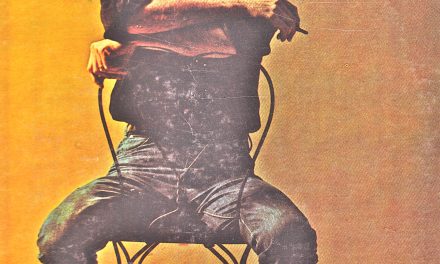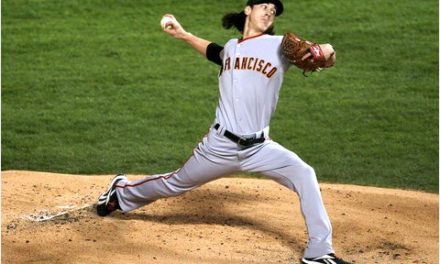Barbosa’s Favorite Herb —Arnica do mato
Leandro Barbosa of the Golden State Warriors, still a dynamo at 33, attributes his enduring spring and speed and his rapid, complete recovery from ACL surgery, to arnica do mato, an herbal extract that he drinks instead of applying topically. Brazilian arnica is related to but not the same as the arnica montano that US and European health food stores sell. Brazilian arnica is customarily used as a liniment for horses, not ingested by people. (We’re filing this under ‘Off-Topic, but note that Cannabis, too, can be used topically or ingested.)
Barbosa’s unusual health regimen was the subject of an informative piece in the May 4 New York Times by Scott Cacciola.
Excerpts follow.
That Barbosa was able to recover so much of his quickness after undergoing knee surgery three years ago remains something of a medical mystery — a mystery, that is, to everyone except Barbosa, who cites clean living, hard work and a green liquid extract made from the leaves of a South American shrub called arnica do mato.
“It burns going down,” said Barbosa, who scored 7 points in 13 minutes in the Warriors’ win Tuesday night. “You kind of feel dizzy if you’re not used to it. I got used to it.”
Barbosa says he has his delivered direct from Brazil as an extract. He drinks it straight up, twice a day — once in the morning and once at night. It is not particularly delicious, he said. Then again, it was not originally intended for human consumption.
“It’s a medicine you give horses,” Barbosa said. “Whenever they get hurt, it helps them recover very quickly. Because they have to run.”
Arnica do mato is hardly a familiar substance in American sports — or anywhere in the country. Several plant science experts said they had never heard of it. Barbosa, though, swears by it. He said he had not sustained any serious injuries since he began swilling his Amazonian potion. He does not think it is a coincidence.
Arnica do mato is hardly a familiar substance in American sports — or anywhere in the country. Several plant science experts said they had never heard of it. Barbosa, though, swears by it. He said he had not sustained any serious injuries since he began swilling his Amazonian potion. He does not think it is a coincidence…
It should be noted that arnica do mato, which is also known as lychnophora ericoides, is not the same as arnica montana, a plant that grows in mountainous regions of Europe and is commonly sold as an over-the-counter homeopathic remedy for soreness, bruising and swelling. They are more like distant cousins.
“The plants are from the same family, but more important, they contain similar substances, and so their uses are comparable,” said Christophe Merville, the director of education and pharmacy development for Boiron USA, a company that manufactures a line of arnica montana products.
Those similar substances include flavonoids, a group of plant metabolites that have antioxidant effects, and sesquiterpene lactones, a class of chemical compounds that are known to have anti-inflammatory properties, Merville said.
Arnica montana typically comes as a topical gel or in pill form — and it is always highly diluted. Alissa Gould, the public-relations manager of Boiron USA, said the company’s arnica montana products were regulated as an over-the-counter drug by the United States Food and Drug Administration.
And unlike Barbosa’s horse-grade extract, Gould said, “our products don’t burn going down.”
Still, Barbosa could not have been more effusive (or exhaustive) in listing the purported virtues of arnica do mato.
“It cleans out all the bad things that you have in your body,” he said as he made a large sweeping motion with his arms. “All natural…”
In February 2013, while playing for the Boston Celtics, Barbosa tore the anterior cruciate ligament in his left knee — a devastating injury for a 30-year-old guard who had always relied on his explosiveness. As Barbosa began his rehabilitation, Alex Evangelista, his personal trainer, recommended that he start drinking the arnica do mato extract. It was new to Barbosa.
Evangelista’s reasoning struck Barbosa: If expensive racehorses were feasting on arnica do mato, then it must be good enough for him. He became a believer. He bought vats of it. He drank it. He even bathed in it.
“Every time I went in the cold tub, Alex would add some to help with the healing,” Barbosa said.
Evangelista, who works for a professional soccer team in Brazil, visited Barbosa for a couple of days here last week. In the home locker room after the Warriors defeated the Houston Rockets to advance out of the first round, Barbosa reminded Evangelista that he needed a fresh supply of the extract. He was running low.
“You cannot find it here in America,” Barbosa said…
Dr. James Gladstone, co-chief of sports medicine at the Icahn School of Medicine at Mount Sinai, said that he was unfamiliar with arnica do mato.
“Athletes are always looking to get an edge — on recovery, on muscle strains, on anything,” said Gladstone, who was speaking generally and had no direct knowledge of Barbosa’s fondness for plant extracts. “As long as they know they’re not performance-enhancing drugs or whatever, why wouldn’t they try it?”
Varejao said that arnica do mato was popular in Brazil as a homemade remedy. He explained how members of his family would let the plant leaves marinate in alcohol to draw out their healing properties, then soak rags in the liquid balm.
“You put the wrap right on the spot that’s bothering you, and it’s really good,” Varejao said.
In other words, Varejao endorsed the use of arnica do mato as a liniment. As for Barbosa’s willingness to drink the stuff?
“Oh,” Varejao said, “I don’t do that.”
As noted above, Cannabis, too, can be ingested or applied topically. And most people can’t stand the taste… A quick Google search turned up this study suggesting that Brazilian arnica —Lychnophora ericoides— might have a beneficial effect in treating colon cancer… About time we had some good news from Brazil. —Fred Gardner




